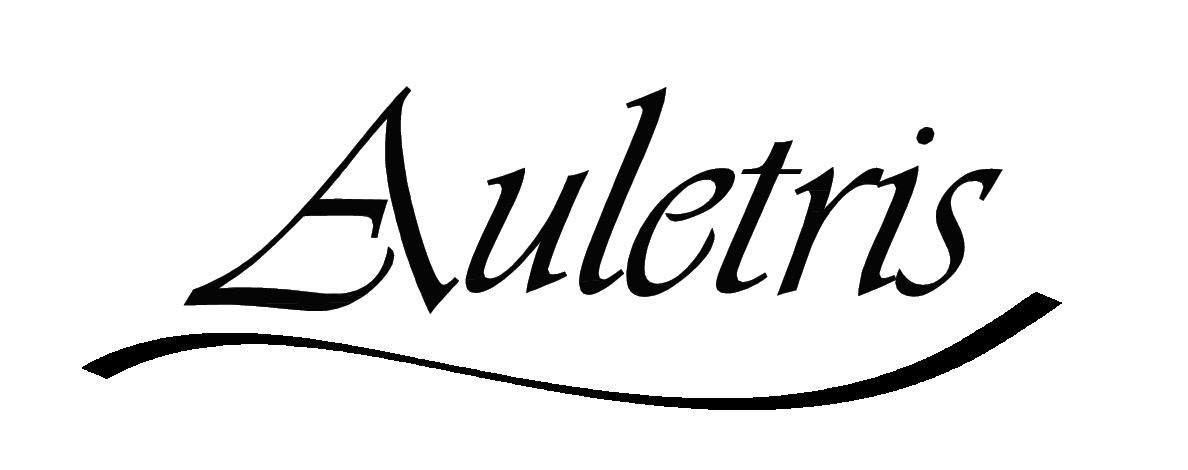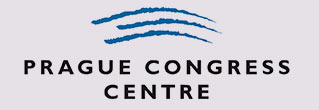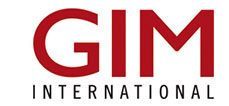Scientific Program & Sessions
ISPRS welcomes all papers bringing new results, achievements, methods and theory to help to shift the present level of knowledge.
The program structure is split into several session types:
Plenary Sessions
Three Plenary Sessions will offer excellent keynote speakers from different cultures and with various interesting topics. Read more about Congress plenary speakers.
Technical Sessions
The Scientific Programme of the Congress will offer a wide range of topics, which are incorporated in the present orientations of the ISPRS Technical Commissions and all their Working Groups (WGs). They are included in the Technical Sessions (TeS).
These sessions form, in fact together with the Theme Sessions, the scientific volume of the development in the ISPRS branches since the previous ISPRS Congress. Technical Sessions are assigned to Working Groups of the ISPRS Technical Commissions.
Technical Commission I
- TeS: WG I/1 — Standardization of Airborne Platform Interfaces
- TeS: WG I/2 — LiDAR, SAR and Optical Sensors for Airborne and Spaceborne Platforms
- TeS: WG I/3 — Multi-Platform Multi-Sensor System Calibration
- TeS: WG I/4 — Geometric and Radiometric Modeling of Optical Airborne and Spaceborne Sensors
- TeS: WG I/5 — Satellite Systems for Earth Observation
- TeS: ICWG I/Va — Mobile Scanning and Imaging Systems for 3D Surveying and Mapping
- TeS: ICWG I/Vb — Unmanned Vehicle Systems (UVS): Sensors and Applications
Technical Commission II
- TeS: WG II/1 — Spatio-temporal Modelling
- TeS: WG II/2 — Multiscale n-dimensional Spatial Data Representations, Data Structures and Algorithms
- TeS: WG II/3 — Spatial Analysis and Data Mining
- TeS: WG II/4 — Spatial Statistics and Uncertainty Modeling
- TeS: WG II/5 — GeoComputation and GeoSimulation
- TeS: WG II/6 — Geovisualization and Virtual Reality
- TeS: WG II/7 — Intelligent Spatial Decision Support
- TeS: WG II/8 — Mobility: Tracking, Analysis and Communication
- TeS: WG II/IV — Semantic Interoperability and Ontology for Geospatial Information
Technical Commission III
- TeS: WG III/1 — Orientation and Surface Reconstruction
- TeS: WG III/2 — Point Cloud Processing
- TeS: WG III/3 — Image Sequence Analysis
- TeS: WG III/4 — 3D Scene Analysis
- TeS: WG III/5 — Computer Graphics and Remote Sensing
- TeS: ICWG III/I — Sensor Modeling for Integrated Orientation and Navigation
- TeS: ICWG III/VII — Pattern Analysis in Remote Sensing
Technical Commission IV
- TeS: WG IV/1 — Methods for the Update and Verification of Geospatial Databases
- TeS: WG IV/2 — Global Status of Mapping and Geospatial Database Updating
- TeS: WG IV/3 — Global DEM Interoperability
- TeS: WG IV/4 — Geospatial Data Infrastructure
- TeS: WG IV/5 — Web and Cloud Based Geospatial Services and Applications
- TeS: WG IV/6 — Sensor Web and Internet of Things
- TeS: WG IV/7 — 3D Indoor Modelling and Navigation
- TeS: WG IV/8 — Planetary Mapping and Spatial Databases
- TeS: ICWG IV/II — Computing Optimization for Spatial Databases and Location based Services
- TeS: ICWG IV/II/VII — Global Land Cover Mapping and Services
Technical Commission V
- TeS: WG V/1 — Vision Metrology
- TeS: WG V/2 — Cultural Heritage Data Acquisition and Processing
- TeS: WG V/3 — Terrestrial 3D Imaging and Sensors
- TeS: WG V/4 — Terrestrial 3D Modelling: Algorithms and Methods
- TeS: WG V/5 — Close-range Measurements for Biomedical Sciences and Geosciences
Technical Commission VI
- TeS: WG VI/1 — Web-based Resource Sharing for Education and Collaborative Research
- TeS: WG VI/2 — E-Delivery of Education Services
- TeS: WG VI/3 — Promotion of International Collaborative Education Programs
- TeS: WG VI/4 — Promotion of Regional Cooperation and Regional Capacity Development in Geoinformatics
- TeS: WG VI/5 — Promotion of the Profession to Young People
- TeS: WG VI/6 — Technology Transfer and Capacity Development
Technical Commission VII
- TeS: WG VII/1 — Physical Modelling and Signatures in Remote Sensing
- TeS: WG VII/2 — DEM Generation and Surface Deformation Monitoring from SAR Data
- TeS: WG VII/3 — Information Extraction from Hyperspectral Data
- TeS: WG VII/4 — Methods for Image Classification
- TeS: WG VII/5 — Methods for Change Detection and Process Modelling
- TeS: WG VII/6 — Remote Sensing Data Fusion
- TeS: WG VII/7 — Synergy in Radar and LiDAR
Technical Commission VIII
- TeS: WG VIII/1 — Disaster and Risk Reduction
- TeS: WG VIII/2 — Health
- TeS: WG VIII/3 — Weather, Atmosphere and Climate Studies
- TeS: WG VIII/4 — Water Resources
- TeS: WG VIII/5 — Energy & Geological Applications
- TeS: WG VIII/6 — Cryosphere
- TeS: WG VIII/7 — Forestry, Natural Ecosystems & Biodiversity
- TeS: WG VIII/8 — Land Cover and its Dynamics, Including Agricultural & Urban Land Use
- TeS: WG VIII/9 — Coastal and Ocean Applications
Theme sessions
Since Terms of References of all WGs were defined already in 2012 and the development in many branches of Photogrammetry, Remote Sensing and Spatial Sciences have brought new topics and themes, the Congress Scientific Programme offers a set of Theme Sessions (ThS). Theme Sessions will also present bridging themes between/among WGs or will be formed from excellent new topics not covered by the WG ones. Some of the Theme sessions are listed in this Announcement and some will even be created from accepted papers according to their content. Everybody with breaking topics is welcome to present such news! ISPRS is happy to give them the floor.
Topics of Theme Sessions (ThS)
- ThS1: Validation and Analyses of Globe Land Cover
Keywords: land over, theme layers, accuracy, classes
- ThS2: Operational Remote Sensing Application Services
Keywords: Remote Sensing Applications, Natural Resources, Resource assessment, Resource management, Sustainable agriculture, Precision farming, Flood inundation, Flood modelling, Ocean colour, Sea surface temperature, PFZ, Rainfall estimation, Railfall forecasting, Crop yield estimation, Crop production estimation, Tsunami, Coastal zone management, Soil resource mapping, Landslide prediction and damage assessment, Disaster management, Climate variability, Climate change, Forestry and ecology, Land use / Land cover, Water Recourses, Cryo-sphere, Hydrological modelling, Atmosphere, Early warning, Prediction modelling, Damage risk / damage Vulnerability, Damage mitigation, Cyclone, Environmental assessment and management, Forest inventory, Forest biomass, Forest stock, Forest working plan, Vegetation carbon, Soil carbon, DEM/DTM , 3D Modeling of terrain, City GML, City modelling, 3D Geo-visualisation, Drought, Earthquake, Geo web services, Geo-portal, GIS, LIDAR, RADAR, SAR, Capacity Building, Aerial Photography, Terrestrial laser scanning, ALTM, Mineral exploration, Natural hazards
- ThS3: Sentinel-I Radar
Keywords: Sentinel 1 SAR data analysis regarding change detection, land cover classification, SAR Polarimetry, SAR Interferometry, novel applications
- ThS4: TanDEM-X
Keywords: will be added soon
- ThS5: 3D information extraction from SAR imagery
Keywords: Digital Surface Models (DSMs) - generation methodologies and quality assessment, StereoSAR (radargrammetry), interferometry, tomography, matching algorithms, point-wise vs. surface 3D feature information extraction, techniques integration, new SAR sensors potential, novel applications, open source software
- ThS6: Perstistent Scatterer Interferometry
Keywords: SAR, SAR interferometry, Differential SAR interferometry
- ThS7: Information extraction from SAR imagery
Keywords: will be added soon
- ThS8: Recent mapping of small planetary satellites, asteroids and comets
Keywords: Planets: Mercury, Venus, Earth, Mars, Jupiter, Saturn, Uranus Neptune, Dwarf Planet: (134340)Pluto), Asteroids: (1)Ceres, (4)Vesta, (21)Lutetia, (243)Ida, (253) Mathilde, (433)Eros, (511)Davida, (951)Gaspra, (2867)Steins, (4179)Toutatis, (25143)Itokawa, Comets: 1P/Halley, 9P/Tempel, 81P/Wild 2, 19P/Borrelly, 67P/Churyumov-Gerasimenko, Satellites: Moon, Phobos, Deimos, Io, Europa, Ganymede, Callisto, Mimas, Enceladus, Tethys, Dione, Rhea, Titan, Iapetus, Phoebe, (134340)Pluto:I Charon
- ThS9: In-door and out-door seamless location and navigation
Keywords: positioning, wifi, Bluetooth, global positioning, tracking, dead-reckoning
- ThS10: Spatial ecology and ecosystem services mapping using Essential Biodiversity Variables (EBVs)
Keywords: biodiversity, ecological traits,EBV (essential biodiversity variables), ESS (ecosystem services), in situ, observations, harmonization, LiDAR, hyper-temporal, hyperspectral, SAR, GIS, data fusion
- ThS11: Unmanned Aerial Systems: The Roadmap from Research to Applications
Keywords: UAS/UAV platforms and sensors, mission planning, primary data processing, performance validation
- ThS12: Location-based Social Media Data
Keywords: Social media, Social networks, Location-based, Data mining, Keyword search, Pattern analysis, Big data
- ThS13: Linked Geospatial Data
Keywords: Linked data, Semantic web, RDF data, GeoSPARQL, Application
- ThS14: Recent Developments in Open Data
Keywords: Open data, Linked open data, e-Government, Geospatial, Web
- ThS15: The quest for objects – does Geographic Object-based Image Analysis meet society’s needs?
Keywords: GEOBIA; object specific remote sensing methods; remote sensing / GIS integration; multi-scale analysis; remote sensing theory
- ThS16: Perceptual and cognitive experiments with imagery and 3D models
Keywords: Human factors, user experiments, fitness for use, usability, visual analytics, visual complexity, vision, perception, cognition, evaluations of information rich visualizations, user studies with satellite images and hybrid visualizations, use studies with 3D visualizations
- ThS17: Smart cities
Keywords: Geodesign, urban planning, visualization and spatial analysis of urban phenomena, energy use, walkability, pollution, health, infrastructure, population, aging
- ThS18: GlobeLand30
Keywords: Methodology of global land cover mapping and monitoring, Validation of GlobeLand30 data, Quality assessment methods, processing, and implementation for global land cover data, Data uncertainty issues related to GlobeLand30 and other global land cover datasets, Comparison and fusion of GlobeLand30 data with other global land cover products and geo-spatial datasets, Applications using GlobeLand30 data Internet-based processing and services of GlobeLand30 data, Societal impacts of GlobeLand30 data and applications
Special Sessions
ISPRS supports cooperation with other organizations like the International Cartographic Association, FIG, UN-GGIM, EuroSDR, URSI, etc. They will organize so called Special Sessions (SpS) to show the relations between ISPRS topics and science in their sphere. These sessions will enhance a range of potential applications of our knowledge and will spread our achievements to the members of our sister organizations.
Topics of Special Sessions (SpS)
- SpS1 - CIPA: Geospatial Technology for Cultural Heritage
Keywords: close-range photogrammetry, implementation of contemporary technologies to the documentation and safegarding culture heritage, bridging the gap between providers of technological documentation products and the users.
- SpS2 - ICSU, Geo Unions, JB GIS, UN-GGIM: Supporting Future Earth with Global GeoInformation
Keywords: Future Earth, geo-information, spatial analyses, sustainabble development, global leadership, inter-disciplinary cooperation
- SpS3 - UNGGIM-AP: Location based management for economic growth
Keywords: place-based information, rapid acquisition and integration, time-critical applications, data sharing, web/cloud-based services, capability to deliver and use of GI, useffulness and benefits of GI, ethical principles
- SpS4 - ICA: Image maps- theory, methods, standards
Keywords: Image map as a special map portraying geographic space with remote sensing image(s), from image parameters through cartographic visualization methods to standardized and non-standardized forms of publishing, theoretical concepts and practical experience with image map making, topography and theme maps areas
- SpS5 - ICA: Image interpretation for mapping
Keywords: Processing of satellite, airborne and RAPS imagery for cartographic work, enhancement of differences between cartographer needs compared to other users of the same image data, practical use of remote sensing images for mapping and cartographic production, theoretical concepts of remote sensing images application for mapping
- SpS6 - ICA: LBS and ubiquitous cartography
Keywords: Outdoor and indoor positioning, Smart environments and ambient spatial intelligence, Spatio-temporal data acquisition, processing, and analysis, LBS, crowdsourcing and volunteered geographic information (VGI), Neocartography, Geotagged big data, Personalization and context-aware adaptation, Visualization techniques for LBS, Novel user interfaces and interaction techniques, 3D and augmented reality, Innovative LBS systems and applications, Wayfinding and navigation, LBS and transportation applications, User studies and evaluations, Privacy and usability, Human factors in LBS, Smart cities, Legal and business aspects in LBS, Open source solutions and standards
- SpS7 - GEO: Earth Observation and Societal Benefits: Global issues and best practices
Keywords: GEO, GEOSS, Earth Observation, societal benefits, climate change, global initiatives, Copernicus, data sharing, big data, cloud computing, project uptake and sustainability, funding opportunities, capacity building, citizen observatories, policy making
- SpS8 - SSUGIT: Russian session - Advances in PH&RS&SIS in Russia
Keywords: UAV, Computer Vision, LiDAR, Multi Sensor Survey, Data Fusion, Open Source Software, Internal and External Orientation, ADC Calibration, Remote Sensing, Geo-information, E-geospace, Geoanalytics, Education, Smart Region, Digital Earth
- SpS9 - GALILEO and COPERNICUS: geospatial and land applications and services
Keywords: Projects co-funded by the European Commission and the European GNSS Agency under Horizon 2020, the biggest EU Research and Innovation programme ever available over 7 years (2014-2020), development of sophisticated and innovative applications related to the Galileo and EGNOS capabilities to developments and technological breakthroughs to viable products with real commercial potential for geospatial community and market, GNSS, Galileo, EGNOS, Remote Sensing, Copernicus Land Monitoring
- SpS10 - FOSS4G: FOSS4G Session (coorganized with OSGeo)
Keywords: Free and Open Source Software for Geoinformatics(FOSS4G), geospatial research platform and systems for developing new applications crossing the new frontiers towards the Internet of Places, Big Geospatial Data processing and analytics and complex simulations essential for understanding and managing the earth systems, human societies and their interaction
- SpS11 - UNOOSA: Achievements and challenges of engaging Earth observations for global development in the post-2015 era
Keywords: Will be added soon
- SpS12 - EuroSDR: Innovative technologies and methodologies for NMCAs“
Keywords: Oblique imagery, dense image matching, production pipeline, mapping, thematic classification
- SpS13 - FIG: The Surveyors‘ Response to City Management
Keywords: spatial data infrastructures, mega cities, informal settlements, smart cities, 3d/4d cadaster, security of tenure, urban land readjustment
- SpS14 - IAG: Imaging Geodesy
Keywords: InSAR, LiDAR, Satellite Altimetry, and Satellite Gravimetry for Geohazards
- SpS15 - URSI: Disaster and Risk Management
Keywords: earthquakes, tsunamis, solar superstorms, sensors technologies, communication technologies, remote sensing systems, image processing, and decision support airborne and ground radars, ground penetrating radars, space based radars, lidars, antennas, propagation limitations through atmospheric and space weather variations, crisis communications, propagation limitations through atmospheric and space weather variations, networking, ground measurement sensors, airborne and other mobile sensors (drones, etc.), satellite based sensors, communications traffic monitoring, signal and target detection and classification techniques, data management, damage assessment\
- SpS16 - EARSeL: Imaging Spectroscopy in environmental analyses
Keywords: Hyperspectral image, Imaging Spectroscopy, field spectroscopy, n-visualisation, subpixel analyses, hyperspectral mapping, feature extraction
- SpS17 - GEO: Earth Observation from Global Land to Urban Systems
Keywords: global urban observation, global land cover, urban morphological database, sustainable cities, requirements for global mapping and validation
- SpS18: Advancing Geospatial Research into Standards: The ISPRS and OGC Coordination
Keywords: OGC, standards, metadata, indoorGML, coverages, data cubes
Interactive Sessions
At the Congress in Prague, emphasis will be given to the presentation of technical papers at the interactive sessions, with direct interaction between authors and audience. Posters will be displayed for the whole day according to the date they are assigned between July 13 to July 18. Topics of Interactive sessions comply with Technical, Theme and Special Sessions.
Commercial Sessions
ISPRS encourages companies especially Exhibitors and/ or Sustaining Members to organize Exhibitor’s Showcase Sessions and Commercial Sessions to present the latest development of their societies to the ISPRS Congress participants. It is a good way to contact directly all subjects who might be interested in possible cooperation.
Commercial Sessions
Exhibitors, Sustaining Members or other interested organizations may organize Commercial Sessions for participants. These take place in designated rooms hired for this purpose. It is a great way to attract possible customers, suppliers or participants. If you have a new product or other news you would like to present to the public a Commercial Session is a great way to do it.
For further information contact us at martin@isprs2016-prague.com.
Exhibitor’s Showcase Sessions
Every exhibitor has an opportunity to make a short direct presentation free of charge during the Exhibitors' Showcase (mic&speakers, basic presentation device) in the exhibition area, where coffee breaks and lunches take place.
If you have just a short presentation about your latest product or quick news you would like to tell to the public, Exhibitor’s Showcase is a great way to communicate. Thanks to the location at the catering area, the wide audience will be always present.

























